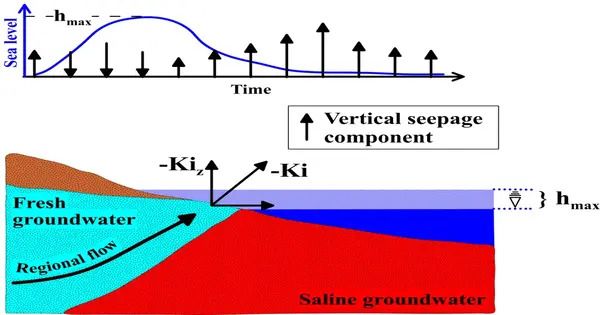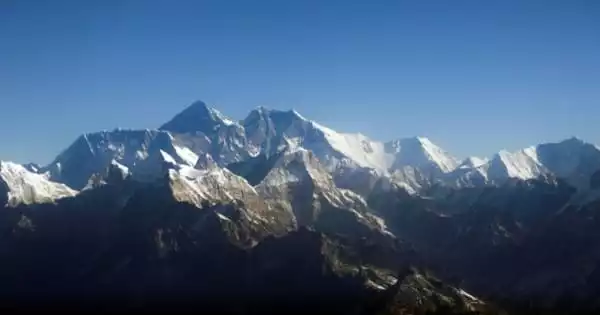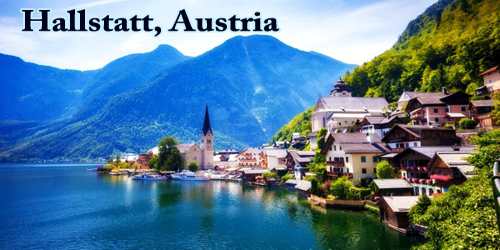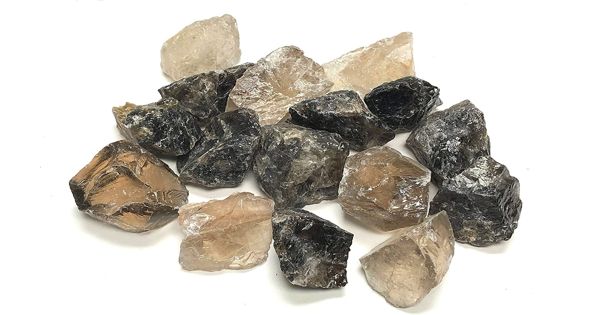Coastal hydrogeology is a subfield of hydrogeology that investigates groundwater dynamics, characteristics, and interactions in coastal environments. It is a branch of hydrogeology that studies the flow and chemical properties of groundwater in coastal locations. It investigates the intricate interactions of surface water, groundwater, and seawater in coastal areas.
Coastal hydrogeology investigates the interaction of fresh groundwater and seawater, including seawater intrusion, sea level-induced groundwater fluctuation, undersea groundwater discharge, human activities, and groundwater management in coastal locations.
The freshwater-seawater interface is a dynamic barrier where freshwater interacts with seawater. An interface in Coastal Hydrogeology is the point when freshwater from an aquifer meets seawater. A stable freshwater-seawater interface is an equilibrium stage in which the boundary is largely fixed. However, seawater intrusion or a high recharge rate disrupts the equilibrium, resulting in an unsteady freshwater-seawater interface. When groundwater and seawater mix, a unique chemical system forms, which serves as an excellent indicator of interaction and interface.
Here are some key aspects and topics within coastal hydrogeology:
- Saltwater Intrusion: Coastal aquifers are frequently threatened by saltwater intrusion, in which seawater infiltrates freshwater aquifers, making them saline and unsuitable for drinking or agriculture. Understanding the mechanisms and conditions that influence saltwater intrusion is critical for managing coastal groundwater resources sustainably.
- Groundwater-Surface Water Interactions: Coastal hydrogeology studies the interplay between groundwater and surface water bodies such rivers, estuaries, and coastal wetlands. These interactions have a substantial impact on nutrient cycling, ecosystem health, and sediment movement in coastal areas.
- Submarine Groundwater Discharge (SGD): SGD is the discharge of groundwater into coastal waterways via seabed sediments. It is an important route for nutrient transport, regulating coastal water quality, biogeochemical cycling, and ecosystem production.
- Coastal Aquifer Characterization: Coastal hydrogeologists study the geological, hydrological, and hydrochemical characteristics of coastal aquifers to understand their behavior and vulnerability to contamination or overexploitation. This includes assessing aquifer geometry, hydraulic properties, and recharge mechanisms.
- Impacts of Climate Change: Climate change presents considerable problems to coastal hydrogeology because it affects sea-level rise, precipitation patterns, storm surges, and groundwater recharge rates. Coastal hydrogeologists investigate these impacts and devise adaption techniques to reduce risks to coastal populations and ecosystems.
Overall, coastal hydrogeology is crucial for addressing water resource concerns, safeguarding coastal ecosystems, and guaranteeing coastal communities’ resilience in the face of environmental change and human activity.
















